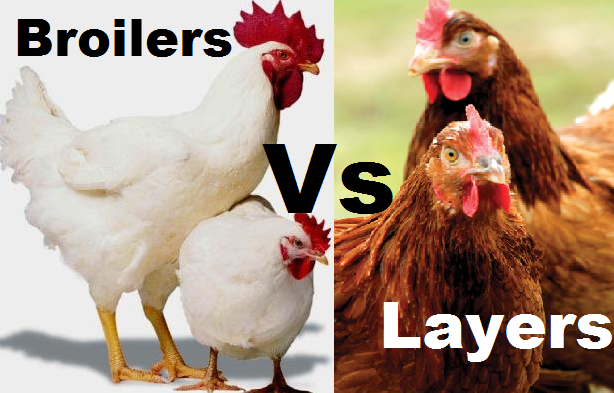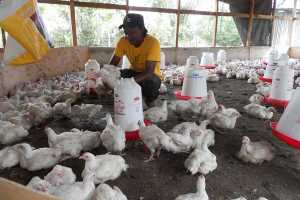Kibos, on the outskirts of Kisumu town, is a fast-growing settlement, with homes taking most of the land to accommodate the growing population
It is in this settlement, which is approximately a 20 minutes drive from Kisumu town, that Shinners Margot Farm is located.
The 1.1 acre farm hosts about 1,000 broilers. They also grow tomatoes in a greenhouse and in the field, indigenous vegetables such as spider plant, cowpeas and black night shade and spinach, climber beans and coriander (dania).
I meet George Kidi, the manager of the farm, at their slaughterhouse. He is supervising the slaughtering of 35 birds for delivery to a hotel in Kisumu.
“We slaughter up to 100 birds in a day but currently the market is low. We only keep broilers because the layers are labour-intensive and take time before one recoups their investment,” says Kidi of the project that was started in 2012.
He explains that they buy day-old chicks and take care of them to maturity at five weeks. “We sell the birds mainly to hotels in Kisumu. They include The Vic, Sovereign Hotel, Peoples’ Hotel and Le Savanna Country Lodge. The price ranges from Sh400, for those who buy in bulk, to Sh450 each.”
Kidi says they slaughter the chickens as service to their customer. However, they make more money as they remove the gizzards, livers, legs and intestines and sell separately. “When we slaughter, we get more profit compared to selling a whole chicken. We sell a kilo of gizzards or liver at Sh60,” he says.
MAJOR HARVEST
Away from the poultry business, the tomatoes sit peacefully in the greenhouse.
Kidi says they have so far planted tomatoes in the greenhouse for six seasons. However, out of the six, only two have been successful. Until recently, their tomatoes were regularly attacked by bacterial wilt.
“But we now plant them in black plastic pots, which control the disease. When bacterial wilt attacks one plant, it spreads fast if there is no barrier between the crops. The pots have helped us curb the disease and losses,” says Kidi, noting they have 870 Anna F1 variety tomatoes, which they planted in February in the 12m by 30m greenhouse.
However, Simlaw Seeds chief research officer Robert Musyoki says the use of pots is a temporary measure to curb bacterial wilt.
“Solarisation, which involves baking the soil can help contain the disease. There are also a variety of chemicals sold in agrovets, which help in curbing bacterial wilt.”
Their first major harvest was in May, and they have been harvesting an average of 30 crates of tomatoes every week since then, although the season is almost done.
“We also supply our tomatoes to hotels in Kisumu and to traders at Sh80 a kilo. The tomatoes are doing well because we use manure from poultry to grow them.”
For the indigenous vegetable, they too sell to the hotels, supplying to at least two produce worth Sh400 each a day.
The farm, which is owned by Caroline Ogot, a Nominated Member of Kisumu County Assembly, has employed six workers who take care of all the projects.
“I went into farming to support a group of 25 children at a home that I have been running with other women under the name Shinners Centre Organisation since 2004 and so far, it was the best decision I did. The children get their supplies from the farm,” she says, adding the orphans learn computer and dress making skills for self-sustenance while a few have been educated to diploma and university level.










